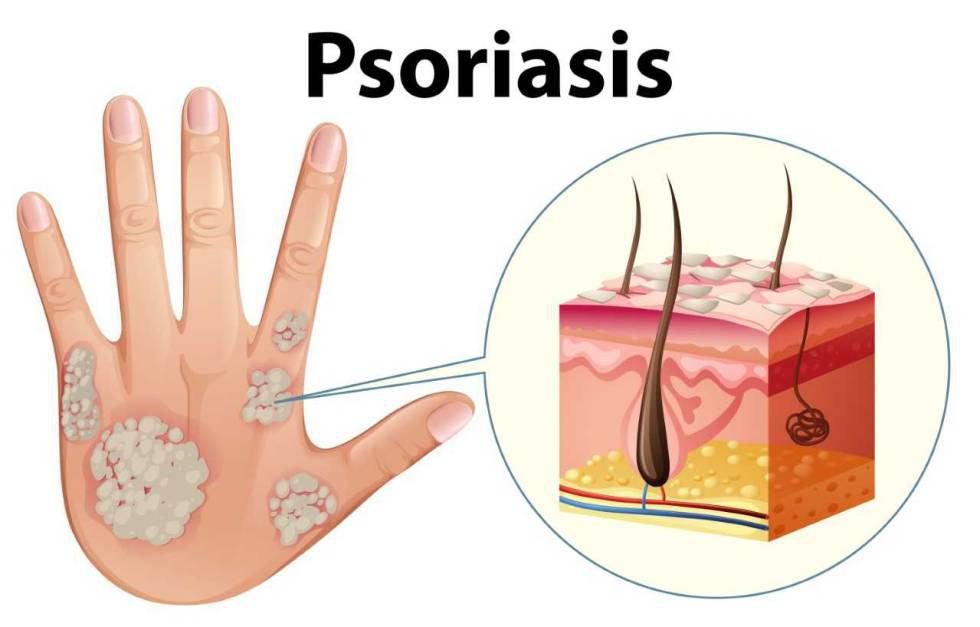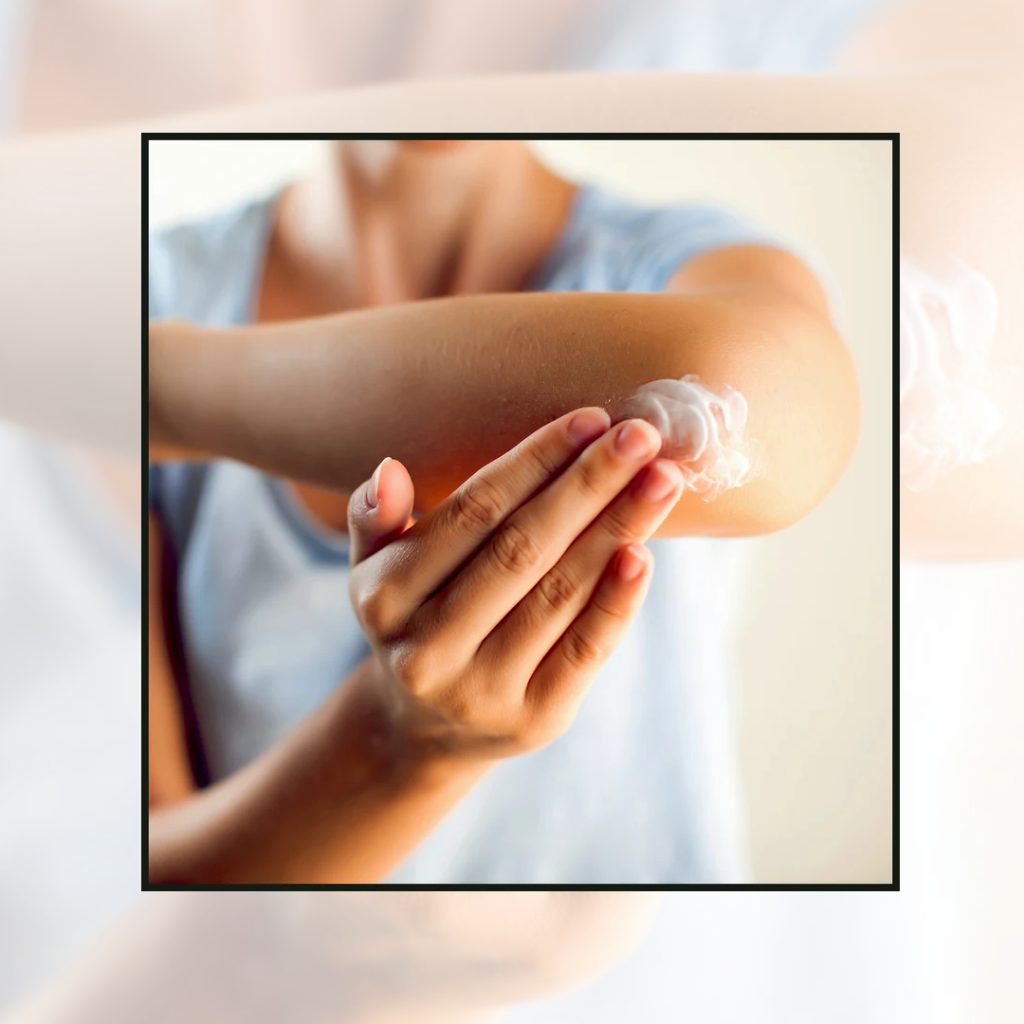Psoriasis Treatment


1. What is Psoriasis?
Psoriasis is a chronic autoimmune skin condition that causes inflammation, itchiness, and discomfort. In people with psoriasis, the immune system becomes overactive and mistakenly attacks healthy skin cells. This leads to the rapid production of new skin cells, which accumulate on the surface and form thick, scaly, or bumpy patches. These patches can appear anywhere on the body, but are commonly found on the elbows, knees, scalp, and lower back.
While there is currently no cure for psoriasis, its symptoms can be effectively managed with various treatments or combinations of them. Psoriasis treatment in Lahore is widely available and meets modern medical standards. The city is home to numerous reputable medical institutes and qualified dermatologists who specialize in managing and treating psoriasis effectively. With access to advanced therapies, including topical treatments, phototherapy, and systemic medications, patients can receive personalized care tailored to their condition.

2. Symptoms of Psoriasis
- Raised rash or thickened skin, often covered with silvery-white scales
- Discolored skin that might appear red, pink, or darker, depending on skin tone
- Dry, cracked patches which can sometimes bleed or become sore
- Itching or burning sensation on the patches. These patches are frequently itchy or uncomfortable
3. Transmission of Psoriasis
Psoriasis is not a contagious disease. You cannot catch it from someone else through touch, sharing personal items, or any form of physical contact. Psoriasis is a chronic genetic disorder, often linked to a family history of the condition. It results from an overactive immune response, not from bacteria, viruses, or other infectious agents. Therefore, the question of transmission does not arise.
4. Causes of Psoriasis
The exact cause of psoriasis is unknown, but it is believed to be the result of a combination of genetic and environmental factors.
Psoriasis is considered an autoimmune condition, where the immune system mistakenly attacks healthy skin cells, leading to inflammation and rapid skin cell growth.
While the root cause isn’t fully understood, certain triggers can set off or worsen the condition, including:
- Stress
- Infections (e.g., strep throat)
- Skin injuries or trauma
- Cold weather
- Certain medications
- Smoking or heavy alcohol use
Genetics also plays a key role; if someone in your family has psoriasis, your risk may be higher.
5. Prevention of Psoriasis
There is no specific way to prevent psoriasis, as it is largely influenced by genetic and autoimmune factors. However, the risk of flare-ups can be managed by observing and avoiding known triggers. Maintaining a healthy lifestyle, managing stress, taking proper care of your skin, and avoiding things that may cause irritation or injury can help control symptoms. While these steps may not prevent psoriasis entirely, they can reduce its severity and frequency. It is always advisable to consult a certified healthcare professional for personalized guidance and effective preventive strategies.


6. Types of Psoriasis
- Plaque Psoriasis
It is the most common psoriasis. The patches that appear on the skin are red with white or silvery scales. They appear in a symmetrical pattern on the body and can be anywhere on the body. They are most commonly found on the scalp, elbows, knees, and lower back. The affected skin may be itchy or sore, and the severity can vary from person to person.
- Guttate Psoriasis
Guttate psoriasis causes small, drop-shaped red spots to appear on the skin. These spots often show up suddenly and can cover large parts of the body. It is most common in children and teenagers, especially after a strep throat infection. In many cases, guttate psoriasis goes away on its own in a few weeks, but it may lead to plaque psoriasis, a longer-lasting form of the condition.
- Pustular Psoriasis
As evident from the name, pustular psoriasis causes white or yellow bumps filled with pus to appear on red, swollen skin. It usually shows up on the hands and feet, but sometimes it can spread to the whole body. This type can be triggered by medicines, chemicals, or infections, and often needs medical care because it can be serious.
- Inverse Psoriasis
Inverse psoriasis shows up as smooth, red patches in skin folds, such as under the breasts, in the groin, or the armpits. These areas don’t have the scaly look seen in other types of psoriasis. Sweating and rubbing can make it worse.
- Erythrodermic Psoriasis
Erythrodermic psoriasis is a rare and serious kind of psoriasis. It makes the skin very red and scaly all over the body. It can happen after a bad sunburn or from some medicines like corticosteroids. It usually affects people who already have psoriasis that isn’t well-treated. This type needs urgent medical help.
7. When Should You See a Specialist?
If you notice any skin changes, such as a rash, bump, redness, or patch that doesn’t heal and continues to worsen over time, it’s important not to ignore it. While many skin issues are harmless, some conditions, such as psoriasis, eczema, or skin infections, can look similar in the early stages and may require professional diagnosis. Seeing a skin specialist (dermatologist) early can help identify the cause, begin the right treatment, and prevent the condition from getting worse. Don’t wait for symptoms to become severe; early care leads to better outcomes.
8. How We Treat Psoriasis
Coping with Psoriasis can be tough. Find help from professionals you can trust, and do your research to find the best psoriasis treatment clinic in Lahore.
At DASC, you can access personalized treatment plans designed to suit your specific condition and guide you through your recovery journey with care and expertise.
Dr. Amina Afzal is a highly experienced health specialist with over a decade of experience in treating psoriasis. She offers tailored treatment options and compassionate care to help patients manage symptoms, reduce flare-ups, and improve quality of life.
Diagnosis
To diagnose psoriasis, your healthcare provider will begin with a physical examination, carefully checking your skin, scalp, and nails for signs of the condition. This is a good time to point out any areas of concern and share details about your symptoms.
Treatment
The goal of psoriasis treatment is to help keep the condition under control. A dermatologist will create a treatment plan based on the type and severity of your psoriasis.
For mild flare-ups, topical creams or ointments are usually the first step. If your skin responds well, the treatment may continue. However, if symptoms don’t improve, your dermatologist may try different treatments or combinations of treatments to see what works best for you.
Types of Treatment
- Topical treatments: Creams and ointments applied directly to the skin
- Phototherapy: The skin is exposed to controlled ultraviolet (UV) light
- Systemic treatments: Oral or injected medications that work throughout the entire body

9. Time to Recovery
Psoriasis recovery time varies for each person. Flare-ups can take weeks or even months to settle down, while periods of remission (when symptoms disappear) can last for months or even years.
Since psoriasis is a chronic condition, it doesn’t go away permanently. That’s why it’s important to watch for triggers and follow your treatment plan. The goal of treatment is to manage flare-ups, reduce symptoms, and maintain long-term skin health.
If you have this condition, then find the best dermatologist in Lahore and discuss your case. Psoriasis treatment price in Lahore would vary depending on the treatment plan as well as the clinic where you are getting the treatment done.
10. Cost of Psoriasis Treatment
If you have psoriasis, it’s important to consult a qualified dermatologist in Lahore to discuss your specific condition and explore the best treatment options. The cost of psoriasis treatment in Lahore can vary depending on the type of treatment, the severity of your condition, and the clinic or hospital you choose. Some treatments, like topical creams, are more affordable, while advanced therapies such as phototherapy or systemic medications may be more expensive. It’s best to have a detailed discussion with your doctor to understand the costs involved and the most effective approach for your case.
FAQ's
Most psoriasis treatments are not painful, though some injections or phototherapy sessions may cause mild discomfort.
It usually takes from a few weeks to months, depending on the treatment type and severity.
Some treatments may cause dryness, redness, or slight irritation, but serious side effects are rare.
Avoid using creams without a prescription, and let your doctor know about any other health issues.
Keep your skin moisturized, avoid scratching, and follow your doctor’s skincare advice.
Psoriasis is a chronic condition, but treatment can control symptoms and reduce flare-ups.
Yes, most treatments won’t affect your daily routine.
It varies by clinic and method. Your skin care specialist can give an accurate estimate.
Yes, especially if you’re receiving phototherapy or injections.
Some treatments are safe and some are not. Please take advice from your dermatologist.

